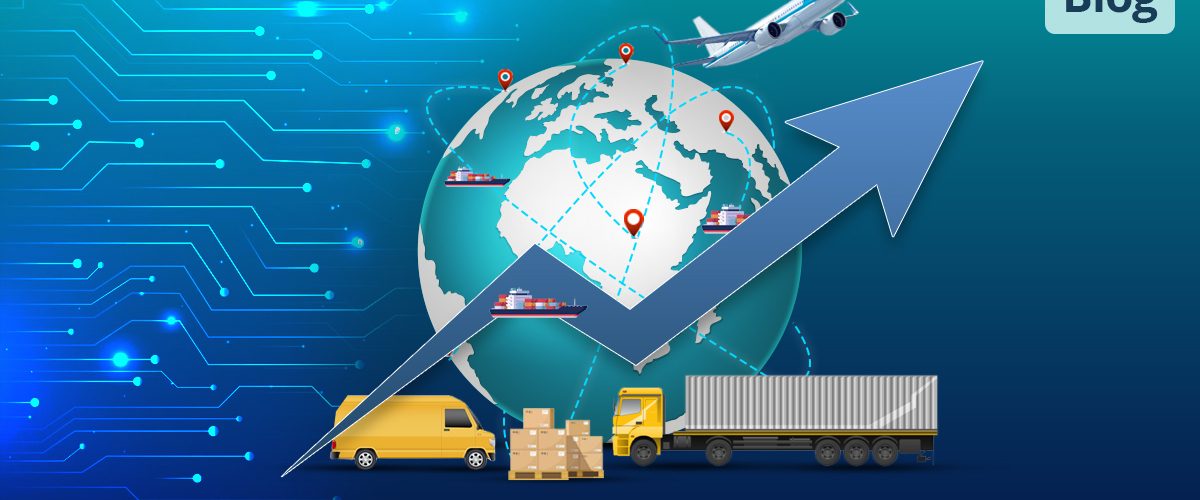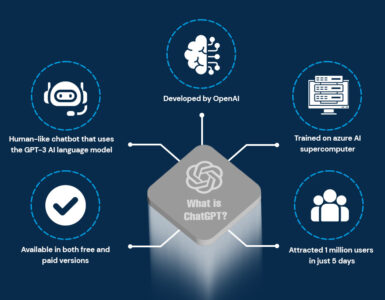Can you remember the time before electronic mail and the internet? So many people panicked and afraid of this new way of life. That is what has been the norm in the Logistics Industry for so long. With always so much to do and to now learn or get your team to adapt to a new process can make you think twice.
But just like when the internet was introduced, automation and digitalisation in the Logistics sector is making its appearance. Many of these technologies were already in the market but just under-utilised. However digitalization has been the driving force in the logistics and supply chain industry since the pandemic.
The industry has been able to keep up with the rise in demand due to technological innovations introduced by businesses. This include many solutions with AI, OCR, RPA, API, and many more that was introduced to streamline business processors.
What is Digitalization?
Digitalization is the use of technological advancements to enhance business models to identify new revenue generating methods and opportunities. Digitalization of the logistics industry is involved in every step of the supply chain processes from procurement, data entry, inventory management, to the last mile.
With the digitalization of the industry, businesses will be able to become more efficient and create revenue generating opportunities. Companies that are up to date with digital trends can allocate their resources more efficiently and effectively.
Digitalization of the processes supports in ensuring businesses can save money, time, and resources.
The Challenges of Digitalization in Supply Chain Management and Logistics
Although there is a high necessity to adopt technology to be a digital freight forwarder, there may be many challenges that could arise. Integration of solutions to an existing system could be a one of the main challenges. A survey done by PwC on Digital Trends in Supply Chain Survey 2022, highlighted few of the following challenges;
- Companies focus on increasing efficiency and costs management in the supply chain. However, value creation opportunities in sustainability, digitization, and transformation are currently missing.
- Companies need more budget to incorporate digital tools and also considers having the right talent and right tech as issues.
- Companies are experiencing higher than normal supply chain employee turnover and only 28% of the respondents fully agree they have the necessary digital skills to meet future goals.
- Only a few see increasing numbers in suppliers, transforming procurement practices or increase of responsiveness and resilience as priorities.
What is Driving the Digitalization in Supply Chain Management and Logistics?
The accelerated adoption of technology in the industry is due to the COVID-19 pandemic. The vulnerability of the supply chain was put into spotlight and heightened the importance to keep evolving to survive in the industry. In order to keep up with the rise in demand businesses eventually had to innovate and implement digital tools to ensure a smooth first mile to last mile process.
The new industrial revolution, Industry 4.0 is only going to keep pushing the companies in the supply chain to incorporating new technologies. The fourth industrial revolution is majorly based on hyper-connectivity and new technologies to automate operational processes.
As per the Deloitte Industry 4.0 Investment survey, the driving forces behind the digitalization are to improve productivity, meet customer requirements, and to keep up with the competition.
Sales Digitalisation Trends
Online pricing methods
Implementing seamless online sales processes is key for most customer centric businesses. It has become essential for logistics businesses to incorporate online quoting and pricing estimates into their systems. These estimates should be given considering all the factors such as routes, type of goods, type of containers, delivery time, overall costs etc. When these factors are considered and quotes are offered, accurate forecasts will be able to be given to the customers increasing reliability.
Incorporating digital tools to provide automated pricing generated considering real time data would enhance the ability to provide reliable services to clients. This will allow to increase accuracy with the organization while providing correct rates to the customers. It is essential to ensure these systems are incorporated step by step to ensure that there is a high success rate.
Customer centric
A customer has many options in the market when choosing a logistics company. The logistics industry is dependent on customer relationships since focusing on customer service will generate high number of sales. Therefore it is essential to strengthen customer relationships to stand out from the competitors and create a loyal clientele.
One of the main ways to increase customer service is to improve the customer journey. It is important for businesses to incorporate tools within their systems to ensure a smooth end-end customer journey. There are online tools or API that could link ERPs that offer quotes or bookings directly. These solutions provide all data to be available in one platform. Providing such tools will increase the overall experience ensuring customer satisfaction.
Customer Relationship Management (CRM) tools are a must in the logistics industry to ensure the best customer experience can be provided. These tools allow data collection to understand what exactly is required by the clients. These solutions provide access to manage all client related data at one place while ensuring data security. This allows team collaboration while the real time data gathered can be used to analyse operations and increase cost efficiency.
Using a CRM tool will ensure that you have a smooth unified operating process and have resources to enhance business planning.
Automation of procedures (AI)
Data entry is a manual, time consuming and an error prone task. Freight forwarders need to deal with thousands of documents on a daily basis. Engaging in repetitive tasks could also mean a high risk of inaccuracy, misinterpretation of data, missed entries etc. Data entry automation will eliminate the manual data process from employee workloads allowing businesses to save time and money while increasing efficiency and revenue.
There are many data entry automation tools in the market powered by AI that will ensure 99% accuracy with data security. AI tools are capable of extracting data and entering into the right fields with accuracy ensuring no costs would have to be incurred to rectify errors. These tools are also capable of constantly learning, allowing to scale as businesses scale.
Automating processes does not mean replacing employees. Automation of these processes will allow employees to focus on value added tasks instead to make proactive decisions to increase ROI.
Digital customer acquisition
Customer acquisition is changing dynamically in the logistics industry. Use of social media to grab the attention of the customer is now drastically increasing. B2B companies are now actively using platform such as LinkedIn to create connections with their customers and other stakeholders to create awareness. Sales teams have the ability to directly communicate with the decision-making parties and constantly follow up to influence to make a decision. Creating content that is educational, insightful, and provide solutions to customers’ needs will improve stakeholder engagement with your business.
Blockchain
Blockchain solutions allow to create encrypted digital records that allow to track goods at every stage of the supply chain. This enhances visibility allowing insight into any disruption in the supply chain. Shipment visibility will allow prompt decision making while automating processes.
Implementing blockchain technology will allow freight forwarders to provide visibility increasing credibility of their business. This technology will enhance the customer experience adding more value to the services provided by the business.
However Blockchain Technology does not take away the importance of your ERP system. Your ERP system will drive your operations and your blockchain technology will use the data from your ERP into blocks of information that can be shared with 3rd parties and other contributors.
Global data available in real-time to make those strategic and authentic decisions. Decisions that will make you stand out from the rest and be a step ahead of your competitors.
The Benefits of Going Digital
As discussed above going digital has many benefits for businesses in the supply chain and logistics industry. A few can be listed as below.
- Improve customer experience
- Automate repetitive tasks
- Ability to visualize data
- Create data driven plans
- Improve lead times with optimization
- Access to real time data for prompt decision making
- Improve efficiency and accuracy
- Improve cost management
Conclusion
Digitalizing the supply chain processes is challenging but rewarding. Although the first step to digitalize entire processes can be overwhelming, digitalization will ensure your businesses will run sustainably. Digital tools will allow businesses to increase ROI while reducing costs. It will ensure freight forwarders and 3PL’s can make proactive decisions with real time visibility into the processes. Implementing digital sales tools will ensure you can become a digital freight forwarder.
How can CargoWise and CargoDoc help?
CargoWise is an integrated digital management solution that is used by companies operating in the logistics and supply chain industry. This software solution enables Logistics Service Providers to execute complex tasks in freight forwarding, warehousing, customs clearance, tracking, shipping, land transport, e-commerce, and cross-border compliance.
CargoDoc is a smart, customized OCR solution developed to help Freight forwarders and 3PLs enter data into CargoWise accurately and swiftly. It is jointly developed by Soft Freight Logic and Deep Cognition, two leaders in the logistics technology industry.
The CargoDoc team has a local presence in the US, and we have domain expertise in Customs of over 15 years with CargoWise Platinum Status over the last 5 years. Our team comprises more than 25 CargoWise accredited consultants. The vast domain knowledge and experience on customs, tax laws, etc., which are unique to the supply chain industry, have enabled us to create the most suitable smart OCR solution in the market for Freight forwarders and 3PLs.
The decades of domain knowledge and expertise in the industry by its creators make CargoDoc the best smart OCR solution for data entry into CargoWise for freight forwarders and 3PLs.
Mail us at sales@cargodoc.ai or click here for a product demo.






